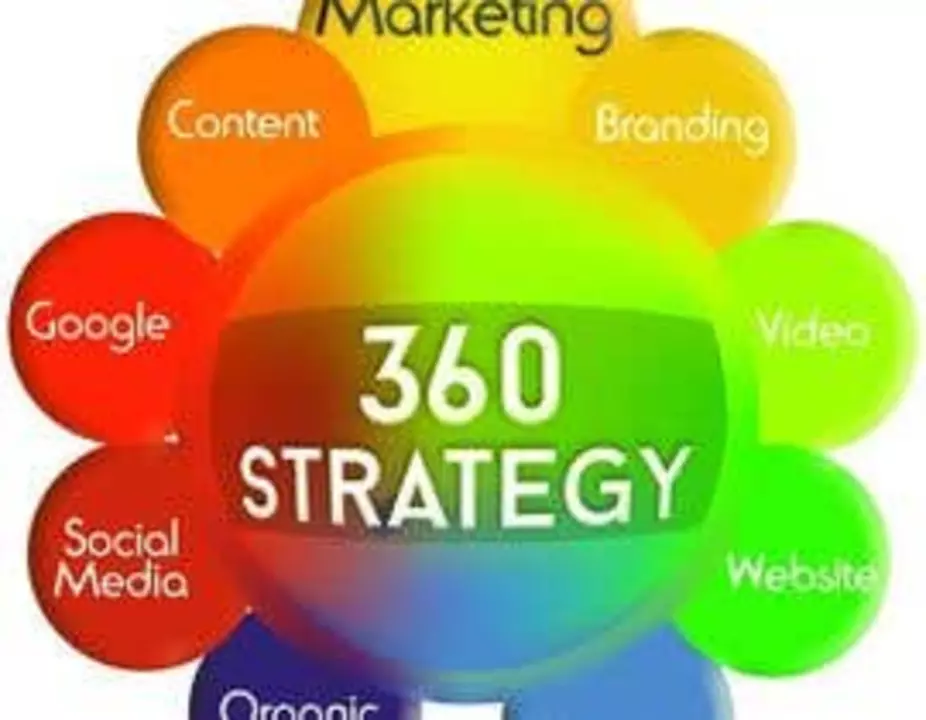Which one is good, SEO or social media marketing?

Introduction: SEO and Social Media Marketing
As a blogger, I'm always looking for ways to drive traffic to my website and increase my online visibility. Two of the most popular strategies for doing this are Search Engine Optimization (SEO) and Social Media Marketing (SMM). Both of these marketing techniques have their own unique benefits and challenges, but which one is the best for your business?
In this article, I'll dive deep into the advantages and disadvantages of both SEO and SMM, and help you determine which one is the right choice for your online marketing efforts. So, let's get started!
Understanding SEO: The Power of Organic Traffic
Search Engine Optimization, or SEO, refers to the process of optimizing your website so it ranks higher in search engine results pages (SERPs) like Google or Bing. This is important because the higher your website ranks on these SERPs, the more organic (free) traffic you'll receive. As a blogger, I know firsthand how valuable organic traffic can be. Not only is it free, but it also tends to be highly targeted, meaning that the people who find your site through search engines are genuinely interested in the content you're offering.
There are two main components of SEO: on-page and off-page optimization. On-page optimization involves optimizing the content on your website (like your blog posts and web pages) so that search engines can better understand and index it. Off-page optimization, on the other hand, involves building backlinks to your website from other reputable sites. This helps establish your website's credibility and authority in the eyes of search engines, which can boost your rankings even further.
The Benefits of Social Media Marketing
Social Media Marketing, or SMM, refers to the process of promoting your website, blog, or brand on various social media platforms like Facebook, Twitter, Instagram, LinkedIn, and more. The main goal of SMM is to increase brand awareness and drive referral traffic to your site. As a blogger, I've found that social media can be an incredibly powerful tool for connecting with my audience and driving traffic to my site.
One of the biggest advantages of SMM is the ability to target specific demographics and interests. This means that you can create highly-targeted campaigns that resonate with your ideal audience, increasing the likelihood of engagement and conversions. Additionally, many social media platforms offer built-in analytics tools that allow you to track the effectiveness of your campaigns and make data-driven decisions about your marketing strategy.
Comparing SEO and SMM: Pros and Cons
While both SEO and SMM are effective marketing strategies, they each have their own unique pros and cons. To help you decide which one is right for your business, let's take a closer look at the advantages and disadvantages of each.
SEO Pros:
- Organic traffic is free, which can lead to a higher return on investment (ROI).
- Search engine users are often actively looking for information, products, or services, making them more likely to convert.
- Improvements in SEO can lead to long-lasting results and increased visibility.
SEO Cons:
- SEO can be time-consuming and requires ongoing effort to maintain rankings.
- Search engine algorithms are constantly changing, which can make it difficult to stay up-to-date with best practices.
- Competition for high-ranking keywords can be fierce, making it difficult to rank for certain terms.
SMM Pros:
- Ability to target specific demographics and interests for highly-targeted campaigns.
- Social media platforms offer built-in analytics tools for tracking campaign effectiveness.
- Great for building brand awareness and fostering a sense of community around your brand.
SMM Cons:
- Can require a significant investment of time and resources to create and maintain social media profiles and content.
- Referral traffic from social media may not always be as targeted or high-converting as organic traffic from search engines.
- Some social media platforms may require paid advertising to reach a wider audience.
Choosing the Right Strategy for Your Business
Now that we've discussed the pros and cons of both SEO and SMM, it's time to decide which one is the best fit for your business. Ultimately, the answer will depend on your specific goals, resources, and target audience. However, here are a few general guidelines to help you make an informed decision:
If your main goal is to drive targeted, high-converting traffic to your site, then SEO may be the better choice. By optimizing your site for search engines, you'll be able to attract users who are actively searching for the information, products, or services that you offer. This can lead to a higher conversion rate and a better ROI for your marketing efforts.
If your main goal is to increase brand awareness and foster a sense of community around your brand, then SMM may be the better choice. By engaging with your audience on social media platforms, you can create a strong online presence and build lasting relationships with your followers. Additionally, SMM allows you to target specific demographics and interests, which can be helpful for reaching your ideal audience.
Conclusion: The Power of Combining SEO and SMM
Ultimately, the best marketing strategy for your business will depend on your specific goals and resources. However, for many businesses, a combination of both SEO and SMM can provide the best results. By optimizing your site for search engines and engaging with your audience on social media, you can drive targeted traffic, increase brand awareness, and ultimately, grow your business.
As a blogger, I've found that a well-rounded marketing strategy that includes both SEO and SMM is essential for success. By taking advantage of the unique benefits of each approach, you can create a powerful online presence that will help you achieve your goals and take your business to new heights.

Post-Comment